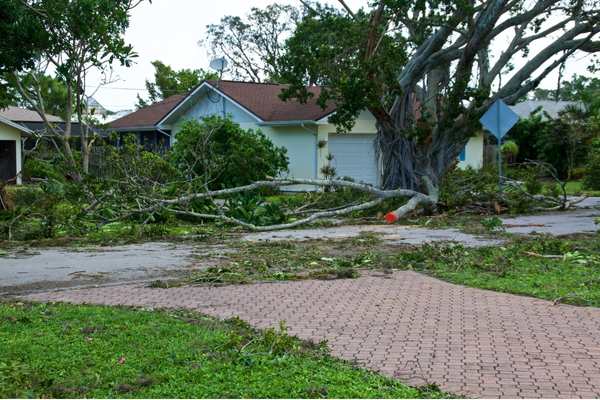While finding great housing is tough, some tenants put up with more hassle than they should. For instance, if your landlord won’t fix the AC in your rental unit, many renters feel they have no rights and must succumb to whatever the landlord says. However, this is not the case. If your landlord won’t fix the AC in your home, it’s essential to know your rights and what steps you need to take to solve this issue.
What Are My Rights as a Tenant?
In short, a tenant’s rights are non-negotiable. And you should know your rights as a tenant. In a rental agreement, both landlord and tenant have certain rights and responsibilities. For example, a landlord must maintain a safe and functional living space. Additionally, the home must adhere to the guidelines set in the lease agreement. Furthermore, tenants have certain rights under federal, state, and local laws.
Tenants have a right to a habitable living space.
You have the right to a livable space that meets basic human needs like shelter, water, and safety. Ultimately, a habitable home means your rental remains structurally sound and in good condition. For example, the wiring, plumbing, and windows should all be up to code and in working order. You should also have access to running water, heat, and air conditioning.
Additionally, you have the right to request repairs from your landlord promptly. State law requires the landlord to make necessary repairs within a reasonable time following the tenant’s notice. However, if they fail to do so, you have the right to hire someone to make the repairs and deduct the cost from your rent payment. In some cases, you may even be able to withhold rent or move out without notice.
Tenants have a right to quiet enjoyment of their homes.
Your rights as a tenant include the right to “quiet enjoyment,” a legal term. This means your landlord cannot evict you without reasonable cause. An example of a reasonable cause would be the tenant’s failure to pay rent. Additionally, the landlord cannot disturb your right to live in peace.
Finally, a landlord may not interrupt utilities unless the interruption results from necessary repairs, construction, or an emergency.
Tenants have a right to security.
A landlord must provide a tenant with basic security measures for the home. According to Texas law, dwellings must be equipped with security devices such as window latches, keyed deadbolts on exterior doors, sliding door pin locks and sliding door handle latches or sliding door security bars, and door viewers. If these devices are missing or defective, the tenant has the right to request installation or repair from their landlord.
Tenants have a right to privacy.
Landlords and tenants generally have a reciprocal right to privacy. Essentially, this means that landlords cannot enter your rental unit without giving you reasonable notice. Additionally, they must obtain your consent unless there is an emergency. Most state laws require that landlords provide tenants with a 24-hour notice before entering the rental unit.
Steps to Take When a Landlord Won’t Fix the AC
If a landlord won’t fix the AC, it’s essential to understand that this issue, in most cases, falls under a landlord’s failure to provide a habitable living space. As a result, a renter may end the lease, receive compensation for the cost of repairs, or file a lawsuit against the landlord.
We recommend taking the following steps below when a landlord won’t fix the AC in your rental.
Read the lease.
Take some time to review the lease that you have signed. It’s essential to understand who is responsible for what in various situations. As a tenant, you can sign away these fundamental rights the state provides. However, it’s up to you to understand what you are signing for when you move to a new space.
Keep proper documentation of the problem history.
If there is an issue in the rental space, make proper documentation of the problem. For example, you should document when the issue begins, how long it continues, and any changes to the issue’s status. Document all communication with the landlord. Take photos of the issue if possible. This evidence helps to reveal where the landlord might be lacking in responsibility.
Communicate with the landlord politely – submit reports.
Communicate with the landlord about the issues in the rental. Provide accurate detail about when the issue started, how it occurred, and any changes to the problem. Always submit any communication to the landlord in writing so you can document the evidence.
Consult an attorney.
If the landlord fails to address the issue after taking the proper action steps, it may be time to contact a real estate lawyer in Texas for further assistance.
Should I File a Suit When a Landlord Won’t Fix the AC?
This should be a last resort because it can be costly and time-consuming. However, if the lack of AC is causing severe health problems, it may be worth pursuing legal action.
No matter what you decide to do, keeping records of everything related to the lack of AC in your home is essential. For example, document correspondence with your landlord (emails, letters, text messages.) and receipts for any repairs or remediation paid out-of-pocket. Additionally, you should keep photos or videos documenting the issue.
Why Hire a Real Estate Lawyer in Texas?
Working with a Real Estate Lawyer in Texas is a great place to start when the landlord won’t fix the AC in your rental. An attorney can discuss your rights as a tenant and the landlord’s responsibilities. Additionally, a real estate lawyer can review your lease and recommend the best course of action to take.
Contact Dooley Noted to schedule a consultation.




